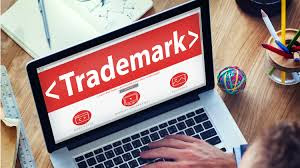A Trademark Registration provides legal protection for a design,
word, phrase, symbol, logo, or combination of those that represents a source of
goods or services. Categories of trademarks for products comprise five main
categories: suggestive mark, descriptive mark, generic mark, imaginary, and
random mark.
- Suggestive Mark
A suggestive
mark entails something about the goods or service. A mark in this group
usually qualifies for protection without necessitating a secondary meaning. The
term "suggestive" indicates that the customer must use the thoughts
to find out what services or goods the company provides.
- Descriptive mark
A descriptive mark recognizes
one or more characteristics of a service or product and only serves to explain
the product. It has distinctive elements that meet the criteria it for
protection under trademark laws for instance; it must have
secondary meaning such as manner and amount of advertising, volume of sales,
manner, and length of the mark's use, or results of consumer surveys to be
eligible. This means that customers must know the mark and recognize it with
the brand. To qualify as a descriptive mark, it should develop from what the
brand represents to who the brand represents.
- Generic Mark
A generic trademark does
not qualify for a trademark except it includes more definite detail. To qualify
a generic mark for a trademark, it needs to explain qualities, ingredients, or characteristics
of the good your business sells.
- Fanciful Mark
A fanciful mark is a logo,
name, or term that is diverse from anything else that exists. This group is the
easiest for getting trademark protection as it typically does not compete with
anything else or become too generic.
- Arbitrary Mark
This may include a phrase or term
with a well-known meaning, but the meaning in its case is different.
For companies that offer
services:
Service Mark: This is same as
trademark, but it differentiates a company that offers services rather than
products. A service mark falls under the legal trademark laws and should be
registered with the USPTO.
An added form of legal protection
for differentiating businesses is:
- A trade dress comprises identifying features of a company or product such as décor items, packaging elements, and other similar concepts. Product features do not typically fall under a kind of trademark for legal protection, but rather under trade dress protection. If a consumer recognizes a specific feature or features with a brand or company rather than the actual product, the case for trade dress protection is powerful.
When applying for Trademark Registration Service protection,
it is vital to know the differences between each type. If your logo, phrase,
symbol, or word is too generic, it will be hard to qualify for legal
protection. It may be worthy to think about modifying your mark so that it
qualifies more easily.

No comments:
Post a Comment